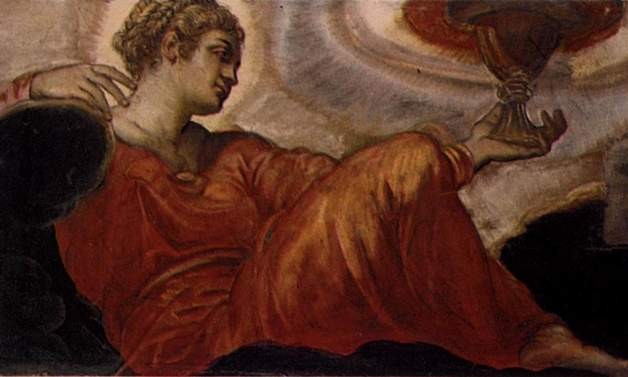Catholics have always loved the martyrs. Their witness is inspiring. Their blood is seed. The day of their death is somewhat paradoxically marked by elaborate liturgy and festive celebration. At the end of the day, the witness of the martyrs is just downright compelling.
In the current age of increasing opposition from the secular sphere, we often hear the witness of the martyrs invoked as a model for Christian life. The logic typically runs along the following lines: Times are tough. The government continues to encroach upon fundamental rights and freedoms hitherto widely recognized. How should Christians respond? The memory wanders to times past in search of guidance. Finally, the witness of the martyrs is invoked as the model for ultimate sacrifice.
I do not think this logic is unhelpful. The martyrs do communicate a certain hope by exemplarity. It gives us courage to know that others have been afforded heroic graces in times of great trial and that these were from the same generous God in whom we now hope. Granting the intuition that God deals in similar fashion with men through the ages, we, too, can take courage in His penchant for seeing us through.
We can deepen our understanding of witness or confession, however, by looking to its foundation. To this end, I offer a story from one of Flannery O’Connor’s letters to Elizabeth Hester, wherein she describes a dinner party during which she was called upon to testify to the Real Presence of the Eucharist:
Well, toward morning the conversation turned on the Eucharist, which I, being the Catholic, was obviously supposed to defend. Mrs. Broadwater said when she was a child and received the Host, she thought of it as the Holy Ghost, He being the ‘most portable’ person of the Trinity; now she thought of it as a symbol and implied that it was a pretty good one. I then said, in a very shaky voice, ‘Well, if it’s a symbol, to hell with it.’ That was all the defense I was capable of but I realize now that this is all I will ever be able to say about it, outside of a story, except that it is the center of existence for me; all the rest of life is expendable.
In her response lies hidden a profound truth. While O’Connor’s confession was, by her own description, somewhat unremarkable—the mundane setting, her shaky voice, the response being terse and even a bit crass—she managed to give expression to a faith inextricably bound up with the Eucharistic presence. And yet, while noteworthy for its wit, the principal marvel in her reply is not mere verbal acumen or courageous profession, but the faith that underlies it.
St. Thomas treats confession of faith as part of his treatise on faith in the Summa Theologiae. He allots only two articles to cover the act of confessing the faith, and the content can be summarized very succinctly: Confession has faith as its goal inasmuch as it gives utterance to the interior act of faith. Furthermore, confession is necessary for salvation only if the circumstances call for it, namely, if, by choosing not to confess the faith, one would detract from the honor of God or the service of one’s neighbor. As such, confession is a matter of charity. With this somewhat unremarkable reply, are we thereby to assume that St. Thomas simply did not share our excitement for past martyrs, whose confession of faith required them to lay down their lives?
If we put the Summa question in context, we find that it comes immediately on the heels of the question devoted to the interior act of faith, which St. Thomas demonstrates to be the heart of Christian belief. In ten articles St. Thomas sheds light on the nature of faith, its ultimate cause in God’s gratuitous movement of the will, and the gravity of its salvific import. In faith, man adheres firmly and indubitably to God based solely on the divine truthfulness, forging a connection by which divine life rushes into the soul. The revelation is astounding: man is made a partaker of the divine life. It is this participation that “makes all the rest of life expendable.”
And so we return to the martyrs, from whence we came. With the eyes of faith, we see that more marvelous even than their displays of fortitude and heroic confession is the faith that made such a witness possible. We reason back from the brilliance of the testimony to its source, the grace of faith in God alive in the heart of the martyr. While it is profitable to call to mind the example of martyrs in times portending persecution, let us not fail to beg now—before any bloody persecution—for the grace of faith, the seed of the seed.
✠
Image: Tintoretto, Allegory of Faith







